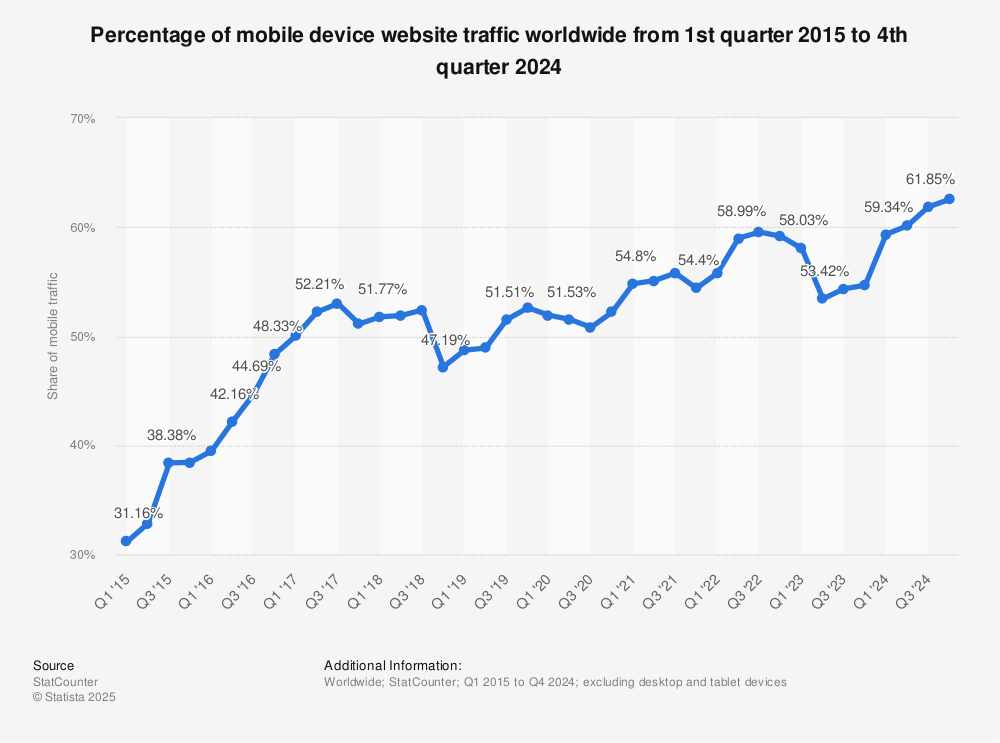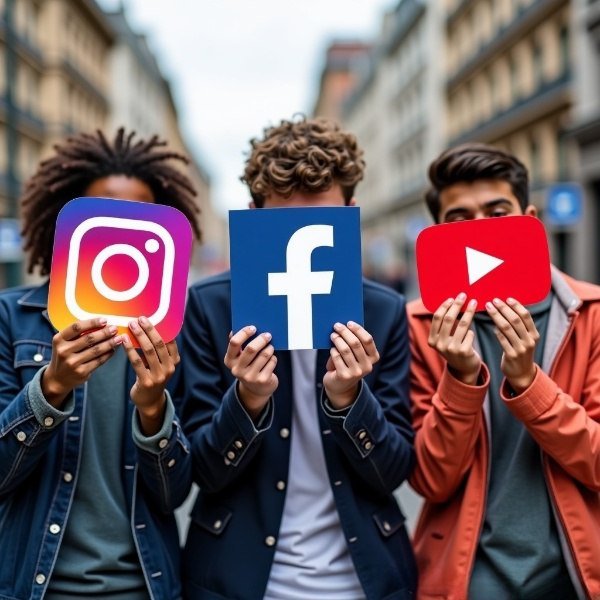Is Your Digital Brand Keeping Up with Current Trends?
In the fast-paced world of digital marketing, staying ahead of the curve requires more than just an online presence; it requires implementing effective digital branding strategies. Your digital brand is not just a logo or a website; it is the complete perception of your business online. The question many business owners and marketers ask themselves is: Is your digital brand in line with current trends?
1. Mobile device compatibility

Today, almost 60% of all internet traffic comes from mobile devices, and this trend continues to grow. If your digital brand is not optimized for mobile devices, you are losing a huge market. Mobile adaptability should be the foundation for website, app, and other digital product development.
What needs to be done:
- Ensure your website and apps look and function correctly on smartphones and tablets.
- Conduct regular tests on mobile devices to improve user experience.
- Use accelerated loading technologies such as AMP (Accelerated Mobile Pages) to minimize page load times.
Tip: A 1-second delay in mobile site loading can reduce conversions by 20%. Stay ahead by prioritizing mobile adaptability.
Make sure your booking engine is fully optimized for mobile devices. A seamless, fast, and intuitive booking process on mobile can significantly boost conversions. For example, a well-designed mobile-friendly booking engine allows users to easily check availability, compare options, and complete reservations in just a few taps.
Statistics: According to Statista, in 2024, 61.85% of global internet traffic came from mobile devices. This trend continues to grow, and mobile traffic will only increase in the future.

Interesting fact: Studies show that a mobile site loading delay of just 1 second can reduce conversions by 20%. Learn more about adaptability trends in the article Top Website Trends for Hospitality in 2025.
2. Content personalization
Today’s users expect brands to reach out to them on a personal level. Personalized offers, content, and communications help increase audience engagement and loyalty.
Key steps:
- Use analytics to understand your audience’s preferences.
- Customize retargeting based on a user’s previous interactions with your brand.
- Implement personalized email campaigns with unique offers for different segments of your audience.
Research from Epsilon shows that 74% of consumers feel frustrated when content isn’t personalized. Moreover, 80% of users tend to make purchases if they are offered personalized offers.
Example: Spotify successfully uses personalization by creating individual playlists based on users’ music preferences, helping retain audiences and boost engagement.
3. Social Media as a Channel of Interaction

Social media remains an essential for building and maintaining a digital brand. However, your approach should feel organic and relevant to your audience.
Recommendations
- Collaborate with influencers to build credibility.
- Utilize platform-specific features like stories and live streams to stay connected.
- Experiment with new formats such as vertical videos, reels, and short TikTok clips.
4. Artificial Intelligence and Automation
AI and automation are becoming integral to modern digital branding. In fact, chatbots, personalized recommendations, and demand forecasts represent just a small portion of what artificial intelligence can deliver. Furthermore, these technologies are transforming how brands interact with customers by providing instant, personalized experiences at scale. For instance, AI-powered chatbots can handle customer inquiries 24/7, while machine learning algorithms analyze user behavior to generate hyper-relevant product suggestions. Additionally, predictive analytics enable businesses to anticipate market trends and customer needs before they arise. Ultimately, by leveraging these intelligent tools, brands can create more meaningful connections while optimizing their operations.
Implementation tips:
- Integrate chatbots to handle common queries instantly.
- Leverage AI to analyze behavior and suggest relevant content.
- Automate routine processes such as email newsletters or ad campaign management to increase efficiency.
Studies indicate that 45% of customers prefer to use chatbots to get instant answers to questions. In addition, artificial intelligence and personalized recommendations can increase sales, as demonstrated by Amazon, where the use of recommendations increases sales by 29%.
Improve your booking engine with AI-driven tools to offer personalized recommendations. For instance, suggest room upgrades, add-ons, or local experiences based on the user’s booking history or preferences. This not only enhances the user experience but also increases revenue per booking.
Example: Amazon is actively using AI to recommend products, increasing the likelihood of purchase. This approach has already become a standard for many successful companies. Read more about it in our blog How AI is Revolutionizing the Hospitality Industry in 2024.
5. Minimalism in Design
In recent years, there has been a clear trend toward simplifying design. This applies to both websites and mobile applications.
Best practices:
- Apply white space principles to emphasize key elements.
- Optimize your site so users can find the information they need in as few clicks as possible.
- Test the design on focus groups to ensure it’s intuitive.
Did you know? Nielsen Norman Group research found that 76% of users judge a brand’s credibility by its website design.
6. Competing for attention
With information overload, user attention is the new “scarcity.” To keep your audience’s attention, you need to create content that will stand out and attract them at first sight.
Effective strategies:
- Invest in creating interactive content, such as quizzes or calculators, that engage users.
- Explore AR/VR (augmented and virtual reality) to create unique experiences. For example, IKEA offers customers an app that allows them to “try on” furniture in their interior.
- Use vivid but not overwhelming images, unconventional formats, and innovative technology.
Conclusion
If you want your digital brand to remain relevant and up-to-date with trends, Zorka Solutions’ services can not only drive this transformation but also enhance your competitive edge. By leveraging mobile optimization, personalization, and AI, your business can differentiate itself while delivering a truly unique user experience.
Keep your digital brand on the road to success with advanced solutions from Zorka Solutions!